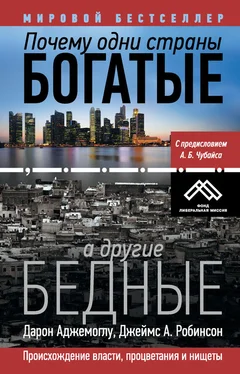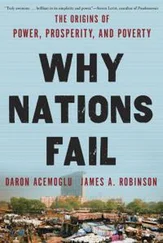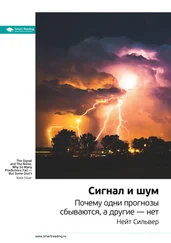Acemoglu, Daron, James A. Robinson, and Rafael Santos (2010). “The Monopoly of Violence: Evidence from Colombia.” Unpublished.
Acemoglu, Daron, and Alex Wolitzky (2010). “The Economics of Labor Coercion.” Econometric , 79: 555–600.
Aghion, Philippe, and Peter Howitt (2009). The Economics of Growth . Cambridge, Mass.: MIT Press.
Alexander, Jocelyn (2006). The Unsettled Land: State-making and the Politics of Land in Zimbabwe, 1893–2003. Oxford, U. K.: James Currey.
Allen, Robert C. (2003). Farm to Factory: A Reinterpretation of the Soviet Industrial Revolution . Princeton, N. J.: Princeton University Press.
— ( 2009a). The British Industrial Revolution in Global Perspective. New York: Cambridge University Press.
— (2009b). “How Prosperous Were the Romans? Evidence from Diocletian’s Price Edict (301 AD).” In Alan Bowman and Andrew Wilson, eds. Quantifying the Roman Economy: Methods and Problems. Oxford, U. K.: Oxford University Press.
Alston, Lee J., and Joseph P. Ferrie (1999). Southern Paternalism and the Rise of the American Welfare State: Economics, Politics, and Institutions in the South. New York: Cambridge University Press.
Amsden, Alice H. (1992). Asia’s Next Giant, New York: Oxford Universty Press.
Austen, Ralph A., and Daniel Headrick (1983). “The Role of Technology in the African Past.” African Studies Review 26: 163–84.
Austin, Gareth (2005). Labour, Land and Capital in Ghana: From Slavery to Free Labour in Asante, 1807–1956. Rochester, N. Y.: University of Rochester Press.
Bakewell, Peter J. (1984). Miners of the Red Mountain: Indian Labor in Potosi, 1545–1650. Albuquerque: University of New Mexico Press.
— (2009). A History of Latin America to 1825. Hoboken, N. J.: Wiley — Blackwell.
Banerjee, Abhijit V., and Esther Duflo (2011). Poor Economics: A Radical Rethinking of the Way to Fight Global Poverty. New York: Public Affairs.
Banerjee, Abhijit V., Esther Duflo, and Rachel Glennerster (2008). “Putting a Band — Aid on a Corpse: Incentives for Nurses in the Indian Public Health Care System.” Journal of the European Economic Association 7: 487–500.
Banfield, Edward C. (1958). The Moral Basis of a Backward Society. Glencoe, N. Y.: Free Press.
Bang, Peter (2008). The Roman Bazaar New York: Cambridge University Press.
Barker, Graeme (2006). The Agricultural Revolution in Prehistory: Why Did Foragers Become Farmers? New York: Oxford University Press.
Bar-Yosef, Ofer, and Avner Belfer-Cohen (1992). “From Foraging to Farming in the Mediterranean Levant.” In A. B. Gebauer and T. D. Price, eds. Transitions to Agriculture in Prehistory. Madison, Wisc.: Prehistory Press.
Bateman, Fred, and Thomas Weiss (1981). A Deplorable Scarcity: The Failure of Industrialization in the Slave Economy. Chapel Hill: University of North Carolina Press.
Bates, Robert H. (1981). Markets and States in Tropical Africa. Berkeley: University of California Press.
— (1983). Essays in the Political Economy of Rural Africa. New York: Cambridge University Press.
— (1989). Beyond the Miracle of the Market. New York: Cambridge University Press.
— (2001). Prosperity and Violence: The Political Economy of Development. New York: W. W. Norton.
Benedictow, Ole J. (2004). The Black Death, 1346–1353: The Complete History. Rochester, N. Y.: Boydell Press.
BerlinerJoseph S. (1976). The Innovation Decision in Soviet Industry. Cambridge, Mass.: Harvard University Press.
Besley Timothy, and Stephen Coate (1998). “Sources of Inefficiency in a Representative Democracy: A Dynamic Analysis.” American Economic Review 88: 139–56.
Besley, Timothy, and Torsten Persson (2011). Pillars of Prosperity: The Political Economics of Development Clusters. Princeton, N. J.: Princeton University Press.
Bloch, Marc L. B. (1961). Feudal Society. 2 vols. Chiacgo: University of Chicago Press.
Blum, Jerome (1943). “Transportation and Industry in Austria, 1815–1848.” The Journal of Modern History 15: 24–38.
Bogart, Dan, and Gary Richardson (2009). “Making Property Productive: Reorganizing Rights to Real and Equitable Estates in Britain, 1660 to 1830.” European Review of Economic History 13: 3–30.
— (2011). “Did the Glorious Revolution Contribute to the Transport Revolution? Evidence from Investment in Roads and Rivers.” Economic History Review. Forthcoming.
Bourguignon, Francois, and Thierry Verdier (1990). “Oligarchy, Democracy, Inequality and Growth.” Journal of Development Economics 62: 285–313.
Brenner, Robert (1976). “Agrarian Class Structure and Economic Development in Preindustrial Europe.” Past and Present 70: 30–75.
— (1993). Merchants and Revolution. Princeton, N. J.: Princeton University Press.
Brenner, Robert, and Christopher Isett (2002). “England’s Divergence from China’s Yangzi Delta: Property Relations, Microeconomics, and Patterns of Development.” Journal of Asian Studies 61: 609–62.
Brewer, John (1988). The Sinews of Power: War, Money and the English State, 1688–1773. Cambridge, Mass.: Harvard University Press.
Briggs, Asa (1959). Chartist Studies. London: Macmillan.
Brunton, D., and D. H. Pennignton (1954). Members of the Long Parliament. London: George Allen and Unwin.
Bundy, Colin (1979). The Rise and Fall of the South African Peasantry. Berkeley: University of California Press.
Burke, Edmund (1790/1969). Reflections of the Revolution in France. Baltimore, Md.: Penguin Books.
Cartwright, John R. (1970). Politics in Sierra Leone 1947–67. Toronto: University of Toronto Press.
Casaus Arzu, Marta (2007). Guatemala: Linaje y Racismo. 3rd ed., rev. y ampliada. Guatemala City: F&G Editores.
Chaves, Isaias, and James A. Robinson (2010). “Political Consequences of Civil Wars.” Unpublished.
Cleary, A. S. Esmonde (1989). The Ending of Roman Britain. London: B. T. Batsford Ltd.
Clower, Robert W., George H. Dalton, Mitchell Harwitz, and Alan Walters (1966). Growth Without Development; an Economic Survey of Liberia. Evanston: Northwestern University Press.
Coatsworth, John H. (1974). “Railroads, Landholding and Agrarian Protest in the Early Porfiriato.” Hispanic American Historical Review 54: 48–71.
— (1978). “Obstacles to Economic Growth in Nineteenth-Century Mexico.” American Historical Review 83: 80–100.
— ( 2008). “Inequality, Institutions and Economic Growth in Latin America.” Journal of Latin American Studies 40: 545–69.
Cole, G. D. H., and A. W. Filson, eds. (1951). British Working Class Movements: Select Documents 1789–1875. London: Macmillan.
Conning, Jonathan (2010). “On the Causes of Slavery or Serfdom and the Roads to Agrarian Capitalism: Domar’s Hypothesis Revisited.” Unpublished, Department of Economics, Hunter College, CUNY.
Corti, Egon Caeser (1928). The Reign of the House of Rothschild. New York: Cosmopolitan Book Corporation.
Crouzet, Francois (1985). The First Industrialists: The Problem of Origins. New York: Cambridge University Press.
Crummey, Donald E. (2000). Land and Society in the Christian Kingdom of Ethiopia: From the Thirteenth to the Twentieth Century. Urbana: University of Illinois Press.
Dalton, George H. (1965). “History, Politics and Economic Development in Liberia.” Journal of Economic History 25: 569–91.
Читать дальше
Конец ознакомительного отрывка
Купить книгу












